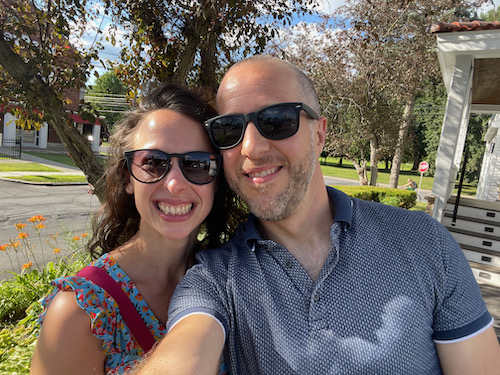The meaning of life and death of a parent
My mother died in February. The simple, clichéd truth is that the death of a parent changes your life. It’s not that everything changes exactly — many things stay the same — but rather that one’s experience of everything is altered. In losing a parent, the buffer between myself and my mortality is thinner. It’s always been thin, I suppose, but my understanding is more pronounced. In my mom’s death, my life is underscored. It will end. It’s hard to state the depth of this meaning. The feelings are much more complicated than a fear of dying (though the fear is real). In fact, the opposite is also true — I’m less afraid and more aware. Plus, my feelings are submerged with the silhouette of a missing person, the outline of a disappearing, reappearing ghost. Sometimes it feels like being haunted. Other times it feels like a hole. Sometimes it shows up as rage and anger, other times as relief. Interestingly, my mom sometimes feels alive. Is she here? Mostly, she feels impossibly far. I didn’t realize that my mother had a ghost until it was gone.
Grief is unique, loss is universal
In losing a parent, it’s helpful to separate bereavement from grief. By definition, bereavement is the state of loss after the death of a loved one. Grief, on the other hand, is the reaction to bereavement. Though similarities exist, most people express grief uniquely according to their circumstances, disposition, and context. Moreover, grief appears differently at different times for the same individual.
In search of lost time through shared experiences
Luckily, knowing the similarities helps minimize the risks. As an adult who has recently experienced the death of a parent, for example, I’m juggling the loss of an attachment figure, the wellbeing of one surviving parent, and a redefinition of self. My mom’s death, in other words, necessitates a reevaluation from adult-child to adult-caregiver. Such challenges are typical for early to middle-aged adults.
The death of a spouse vs. the death of a parent
Unlike the death of a parent, however, the death of a spouse for an older adult is generally much more difficult. While older adults are already at a higher risk for major depressive disorder (nearly one in four adults over 65 are diagnosed with depressive symptoms), widowed individuals are up to nine times more likely to develop severe mental health conditions. Plus, the bereavement of a spouse is not only one of the most stressful transitions in a person’s life, it is also associated with serious physical risk factors as well. Widowhood, worts of all, presents the very serious danger of the widowhood effect – an increased possibility of the widow’s death. Likewise, mental health risks are greater for widowed men than they are for women.
Helping a parent deal with the death of a spouse
Though my father is healthy and resilient with high levels of self-efficacy, loneliness is the greatest challenge for older, bereaved spouses. Knowing this, I can attempt to give him support, continuity, and companionship. Most simply, I can listen, ask questions, and talk to him. By regularly talking with him, I can smooth this transition, decrease the rise of depressive symptoms, and scaffold increased levels of wellbeing.
Talking and listening to help the living deal with the dead
As we age, people examine their past and share their experiences. Such sharing has a profound psychological purpose. It even has a name: life review. Most of all, a life review gives the reviewer a greater sense of meaning and a profound self-concept. Life review is a natural way to capstone living. Furthermore, listening to a reviewer gives the reviewer understanding and a foundation for higher self-esteem, a significant coping mechanism when dealing with death. For the bereaved, this is magnified and even more important. In total, there’s a benefit to talking when dealing with death and to listening when dealing with the death of a parent, a spouse, or a loved one in general.
This temporal life
Life is temporary, and considering the temporal has left me a bit more emotional. For better or worse, it comes and goes (see grief above). But if there are two lessons from the death of my mom that I’d like to share, it’s these: (1) it’s worth being misunderstood in order to be heard. When dealing with death, it’s beneficial for everyone to speak up. (2) While talking is a great medicine, we all can benefit by listening a bit more.
Remember…you are so much more than any one relationship.

